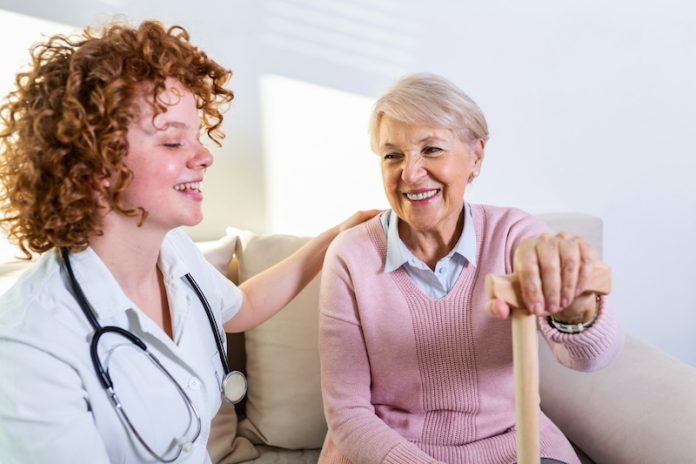
Dementia and Parkinson’s disease are two conditions that affect the brain, leading to symptoms like memory loss, confusion, and movement problems.
While medications can help manage these symptoms, there are also many non-medication approaches that can be effective.
These natural methods can improve quality of life and are often used alongside traditional treatments. Here’s a look at some of the best non-medication strategies for managing symptoms of dementia and Parkinson’s, based on research and expert advice.
Exercise is one of the most effective ways to manage symptoms of both dementia and Parkinson’s disease.
Regular physical activity can improve strength, balance, and flexibility, which are crucial for people with Parkinson’s. Studies have shown that exercise can slow the progression of motor symptoms and improve overall physical function.
For people with dementia, exercise has been found to improve mood, reduce anxiety, and enhance cognitive function. Activities like walking, swimming, tai chi, and yoga are all great options.
A healthy diet also plays a significant role in managing these conditions. Research suggests that a diet rich in fruits, vegetables, whole grains, lean proteins, and healthy fats can support brain health.
The Mediterranean diet, in particular, has been linked to a lower risk of developing dementia and can help manage symptoms in those who already have the condition. For Parkinson’s disease, a balanced diet can help manage weight, reduce constipation, and ensure proper medication absorption.
Social interaction is another important factor. Staying socially active can help reduce feelings of isolation and depression, which are common in both dementia and Parkinson’s disease.
Engaging in regular social activities, whether it’s joining a club, attending community events, or simply spending time with friends and family, can have a positive impact on mental health and cognitive function. Research shows that social engagement can slow cognitive decline and improve the quality of life for people with these conditions.
Mental stimulation is crucial for brain health. Activities that challenge the brain, such as puzzles, reading, playing musical instruments, or learning new skills, can help maintain cognitive function in people with dementia.
For those with Parkinson’s disease, cognitive exercises can also be beneficial in managing cognitive symptoms. Research supports the idea that keeping the brain active can slow the progression of cognitive decline.
Creating a safe and supportive environment at home is essential for managing dementia and Parkinson’s symptoms. This includes making modifications to prevent falls, such as removing tripping hazards, installing grab bars, and ensuring good lighting.
For people with dementia, it’s also important to keep the living space simple and organized to reduce confusion and anxiety. Labeling drawers and cupboards and using reminders and calendars can help with memory problems.
Music therapy is a powerful tool for managing symptoms. Listening to music, singing, or playing musical instruments can improve mood, reduce stress, and enhance cognitive function in people with dementia.
For Parkinson’s disease, music can help with movement and coordination. Rhythmic cues from music can improve walking speed and reduce freezing episodes, where a person temporarily feels stuck in place. Research has shown that music therapy can have significant benefits for both conditions.
Art and creative therapies can also be beneficial. Activities like painting, drawing, and crafting can provide an emotional outlet and stimulate the brain. For people with dementia, these activities can improve mood and reduce agitation.
For those with Parkinson’s, creative therapies can improve fine motor skills and provide a sense of accomplishment. Studies suggest that engaging in creative activities can enhance well-being and quality of life.
Mindfulness and relaxation techniques can help manage symptoms of both conditions. Practices like meditation, deep breathing exercises, and progressive muscle relaxation can reduce stress and anxiety.
For people with Parkinson’s, these techniques can help manage tremors and improve overall emotional health. Research indicates that mindfulness practices can improve mood and cognitive function in people with dementia.
In summary, there are many non-medication approaches to managing symptoms of dementia and Parkinson’s disease. Regular exercise, a healthy diet, social interaction, mental stimulation, creating a supportive environment, music therapy, art and creative therapies, and mindfulness techniques all play a crucial role.
These strategies can improve quality of life and are supported by research as effective ways to manage these conditions naturally. By incorporating these methods into daily life, people with dementia and Parkinson’s can experience better health and well-being.
If you care about Parkinson’s disease, please read studies about Vitamin E that may help prevent Parkinson’s disease, and Vitamin D could benefit people with Parkinson’s disease.
For more information about brain health, please see recent studies about new way to treat Parkinson’s disease, and results showing COVID-19 may be linked to Parkinson’s disease.
Copyright © 2024 Knowridge Science Report. All rights reserved.



